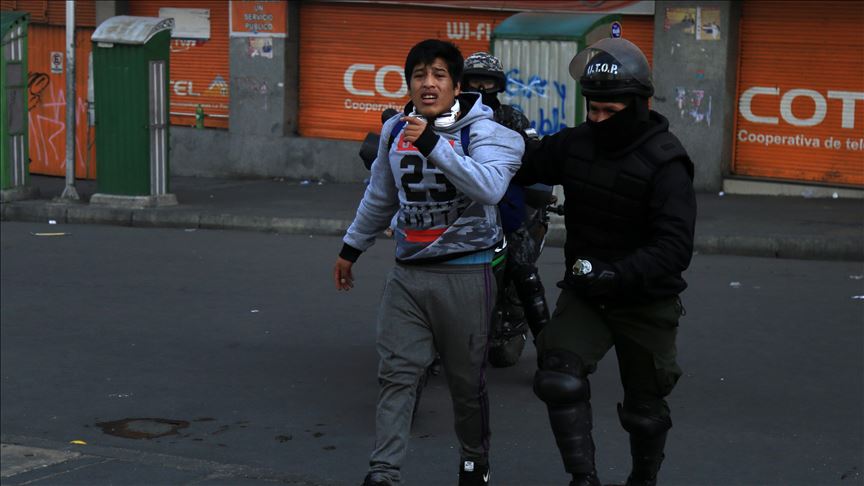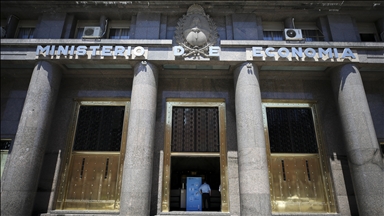 Bolivian riot police arrest a demonstrator during a protest against the interim government. ( FILE PHOTO )
Bolivian riot police arrest a demonstrator during a protest against the interim government. ( FILE PHOTO )
ANKARA
Argentine human rights observers reported crimes against humanity committed by Bolivia's de facto government, local media reported on Wednesday.
"We have found that the repressive system set up by the de facto government has caused dozens of deaths, hundreds of arbitrary detentions, thousands of wounded, countless cases of coercion and torture, rapes and other crimes against the physical, psychological and sexual integrity of the victims who are men, women, children, the elderly and members of vulnerable groups," said the report of researchers, which was released in a Tuesday news conference, according to Argentina's daily Pagina 12.
"It is clear that what is needed is the action of a supranational body such as the Inter-American Commission on Human Rights or that a country opens an instance of trial," said Roberto Carles, among lawyers participating in the work of delegation.
A-week-long investigation carried out by the researchers includes testimonies of victims and witnesses of state violence after the ouster of former President Evo Morales.
The most serious violation cases, which the delegation treats as "crimes against humanity" in the report, were committed in Sacaba and Sentaka.
The delegation was stopped on Thursday by the interim government of Jeanine Anez on their way to the capital La Paz, where they seek to make contact with the Ombudsman's Office in La Paz, the daily said.
Turmoil in Bolivia began in October, when Morales won a fourth term in office and faced immediate resistance from opposition parties that challenged election results.
Protesters took to the streets claiming the ballot was rigged.
After weeks of upheaval, Morales resigned under pressure from the military and moved to Mexico, where he was offered political asylum.
Conservative Senator Jeanine Anez then proclaimed herself interim president.
But public demonstrations have yet to subside, with mostly rural and indigenous pro-Morales supporters taking to the streets, including in La Paz, as well as Sacaba and Cochabamba, since he left the country saying his ouster was a coup.
While a new presidential election was set for March 2020, the Anez government threatens Morales with a prison sentence if he is to return to the country.
Anadolu Agency website contains only a portion of the news stories offered to subscribers in the AA News Broadcasting System (HAS), and in summarized form. Please contact us for subscription options.



